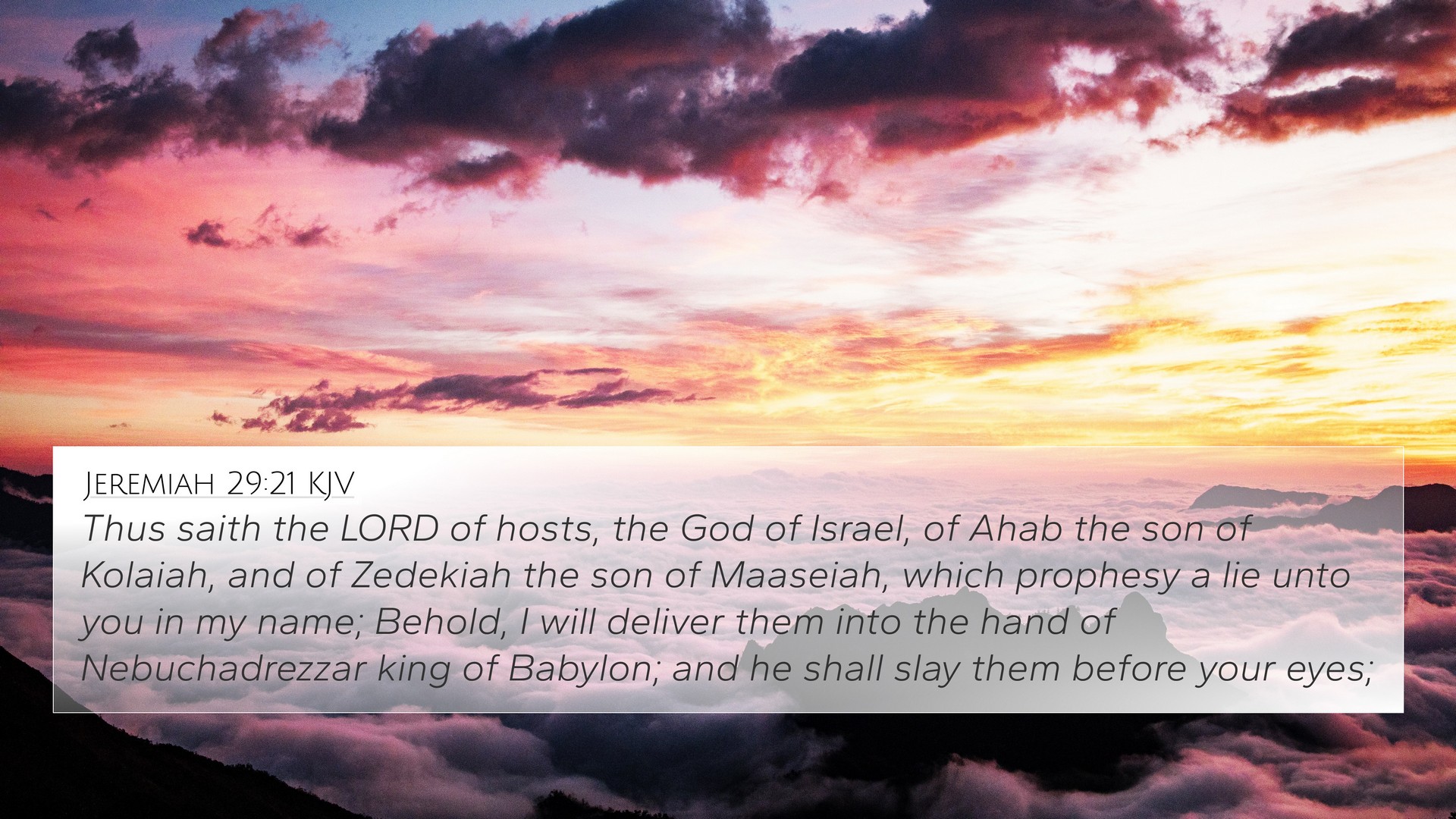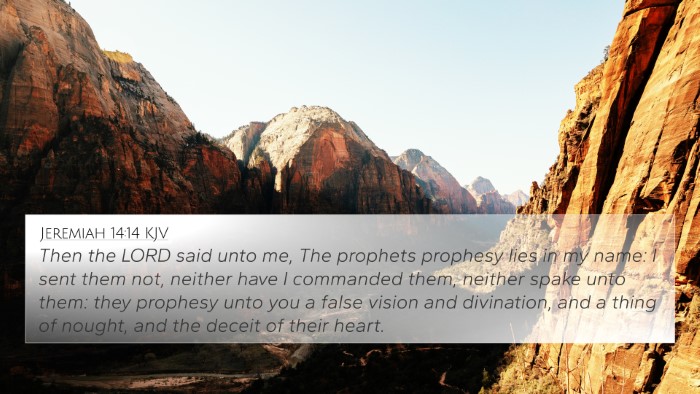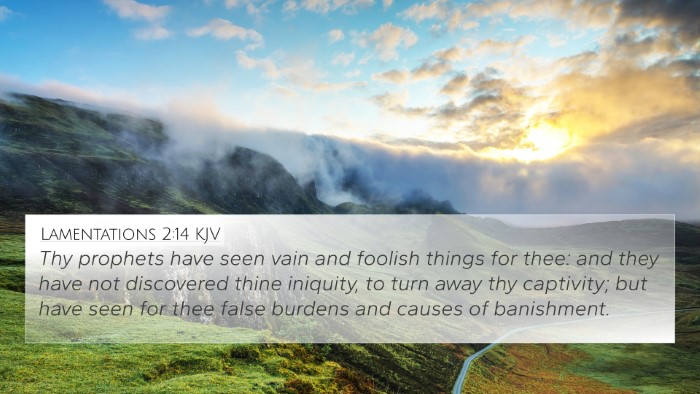Understanding Jeremiah 29:21
Jeremiah 29:21 states: "Thus saith the Lord of hosts, the God of Israel, concerning Ahab the son of Kolaiah, and concerning Zedekiah the son of Maaseiah, which prophesy a lie unto you in my name: Behold, I will deliver them into the hand of Nebuchadnezzar king of Babylon; and he shall slay them before your eyes." This verse deals with the fate of false prophets and their misleading teachings during a time of great distress for the Israelites.
Summary of Meaning
The words of the Lord through the prophet Jeremiah serve as a strong warning against the dangers of false prophecy and deceitful counsel. The false prophets mentioned, Ahab and Zedekiah, are condemned for leading the people away from the truth of God’s intentions. They misrepresent God's word, suggesting false hopes instead of the reality that the Israelites needed to face as they were captives in Babylon.
Commentary Insights
-
Matthew Henry:
Henry emphasizes the seriousness of prophecy in the name of the Lord and suggests that Ahab and Zedekiah were not merely mistaken but intentionally misleading. This deceit compounded the people’s suffering as it delayed their acceptance of God’s true message of hope and restoration.
-
Albert Barnes:
Barnes points out that God’s judgment is particularly directed at these false prophets, highlighting that they would face dire consequences. The mention of being delivered to Nebuchadnezzar signifies God's sovereignty over even the rulers of nations, which serves as a reminder of divine authority amidst human rebellion.
-
Adam Clarke:
Clarke provides historical context, noting that Ahab and Zedekiah were prominent voices among the exiled Israelites. His commentary suggests that their prophecies not only led the people astray but also created significant social and spiritual upheaval that God had to address directly.
Key Themes in Jeremiah 29:21
- Divine Judgment: The consequences facing Ahab and Zedekiah illustrate the seriousness of misrepresenting God’s word.
- The Role of Prophets: This verse highlights the weighty role of prophets and the accountability they hold for their words.
- The Reality of Captivity: The context of this verse addresses the difficult reality faced by the Israelites in Babylon, emphasizing the need for honest guidance.
Cross-References and Connections
This verse interlinks with several other Biblical texts that discuss false prophecy and divine judgment:
- Jeremiah 14:14: Discusses the false prophets speaking lies in God's name.
- Ezekiel 13:3: Condemns the false prophets of Israel.
- 2 Peter 2:1: Warns about false teachers among believers.
- Matthew 7:15: Advises to beware of false prophets.
- Micah 3:11: Critiques prophets who prophesy for profit.
- Deuteronomy 18:20: States that a prophet who speaks a word not commanded by God shall die.
- 1 Timothy 4:1: Informs about the departure from the faith by some, giving heed to deceiving spirits.
Implications for Today
This scripture prompts readers to remain vigilant against false teachings. It reminds believers to cross-reference Bible verses thoughtfully and ensure that the teachings they follow are in alignment with the truth of Scripture.
Connecting Themes and Conclusions
In analyzing Jeremiah 29:21, we can see how vital it is to maintain a strong grip on the true message of the Bible amidst various interpretations and teachings. The tools for Bible cross-referencing, such as a Bible concordance or cross-reference guide, can facilitate deeper study and understanding of how scriptures relate to one another.
Tools for Deeper Study
To explore these connections further, consider using:
- Bible concordance for finding specific keywords.
- Cross-reference Bible study materials.
- Online resources or commentaries that provide thematic connections.
Conclusion
Jeremiah 29:21 serves as a poignant reminder of the importance of truth in prophetic utterances and teachings. By thoughtfully engaging with this scripture and its cross-references, believers can better understand the implications for their faith today, connecting the dots between various Biblical narratives and teachings. This is essential for maintaining a robust and faithful discipleship amidst a world full of diverse and often contradictory voices.





